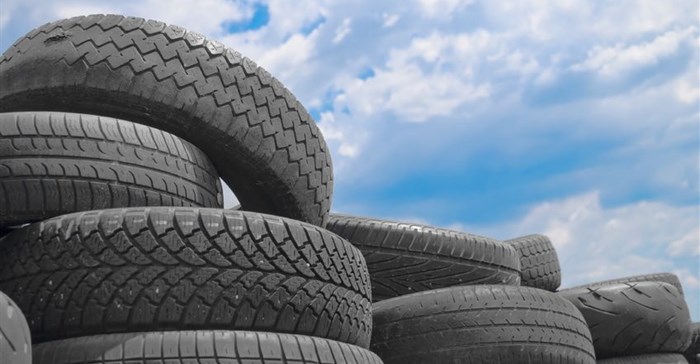
While we understand that government needs to raise additional funds for the fiscus, we don’t believe that the tyre tax model is the best way to generate revenue and drive economic growth. This is in the face of growing unemployment – currently sitting at 26,6% - and shrinking economic growth in the country – our forecast GDP growth was once again decreased to 0.9% for 2016.
It is our opinion that if the current tyre waste management fee collected by REDISA moves into the fiscus, it will bring to an end the significant headway that we have achieved within just three years. Over 200 SMMEs rely on the mentorship, support and assistance made possible by the REDISA Plan. 19 university students are benefiting through REDISA bursaries and 3,500 jobs rely on the network that has been created.
Compare this to the plastic bag waste management stream where a tax was implemented in May 2003, and the contrast is staggering. Of the R200m collected each year, only R30m is allocated to the Department of Environmental Affairs to directly impact industry development. That is a total of only 15%.
Over and above the economics, the plastic bag tax was put in place to encourage reuse and recycling while mitigating the environmental impacts of plastic bag pollution. The money collected was meant for the expansion of waste collection including the establishment of rural waste collection SMMEs, job creation, improving skills and reskilling workers in the plastics field. Based on research done this has proven to have failed.
The question then is why would government want to go down a road which will ultimately lead to the collapse of what is a developing industry?
The devil is in the detail.
Understanding the difference between the REDISA waste management fee and a tax is critical to ensuring the ongoing success of this new tyre recycling industry’s development.
A tax is a compulsory contribution to state revenue, levied by government on workers' income and business profits, or added to the cost of some goods, services, and transactions. Money collected from taxes goes into the general fiscus.
The waste management fee on the other hand is a fee paid by producers to offset the cost of dealing with tyres once they reach end-of-life, in direct proportion to the volume of tyres they put into the market. A critical difference is that this money is directly and specifically applied to dealing with the product and building the recycling industry. These funds are managed responsibly, in an audited and accountable fashion, making it far more effective than a tax-based system where funds are diluted into the general Treasury pool without being ring-fenced.
A further point to consider is the concept of Extended Producer Responsibility (EPR). In waste management, EPR is a strategy which has been designed to promote the integration of environmental costs associated with goods throughout their life cycles into the market price of the products. The REDISA Plan promotes this principle and ensures that through research and development being undertaken, this responsibility will be further extended to promote the development of more environmentally friendly products in the future.
Something which industry is fearful of.
The funds collected from the plastic bag tax go directly to the government fiscus, with the DEA having to apply to Treasury to recoup monies in order to develop the promised recycling industry. This has proved to be unsuccessful. An NGO called Buyisa-e-Bag was started in 2004 as the implementation arm, but was wound up in 2011 without being able to achieve its key objectives. A study by the CSIR reported that in the February 2006 financial year only 7% of the levies collected actually got paid to Buyisa-e-Bag, so it is perhaps not surprising that the organisation shut down with little to show.
In contrast, when the REDISA Plan was legislated, Minister Molewa emphasised that the waste management fee collected would not end up in the general fiscus, and that it would be the responsibility of those introducing the waste, i.e. tyre manufactures and importers, to pay for the remediation of the resulting waste. The advantage is that REDISA is 100% accountable for what happens with the funds through strict corporate governance practices and audit requirements that ensure these funds are applied according to the mandates set out in the Plan.
It’s hard to see why industry would prefer for the tyre levy to go the way of the plastic bag tax.
What has made the REDISA Plan successful over the past three years, is its current funding model – in which the fees are paid directly to REDISA and spent in an auditable and accountable fashion.
The REDISA Plan, which has achieved global recognition, has proven to be a solution that provides government a viable plan at no cost to the fiscus. The approach is one that was put in place to stimulate economic and socio-economic growth, and it’s working. To remove the one aspect that makes it so successful and replace it with an approach that has proven to fail, would be short-sighted and to the detriment of not only all involved, but to the future of waste management development in the country. An industry which we have estimated at being able to drive R150m for waste tyres alone in terms of economic stimulation.
It is time South Africans reviewed the current status quo and asked themselves if our current revenue generation model is the best for the economy. The tyre tax model will only benefit government, which given the current climate is not ideal.
We have proven through the REDISA Plan that a waste management fee is the best solution not only to have an overall positive impact on the environment but also to drive economic growth, develop infrastructure and a new industry that has created small business opportunities and provide a source of income for many low-skilled South Africans - a win-win situation for all.
